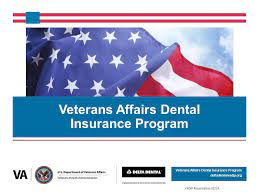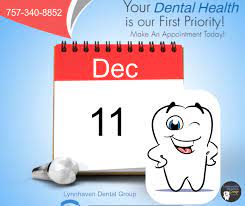Dental Plans for Veterans: Accessing Quality Care
As veterans, our brave men and women have dedicated their lives to serving our country. They have made countless sacrifices to protect our freedoms, and it is only fitting that we provide them with the care they need, including dental care. Dental health is a crucial aspect of overall well-being, yet many veterans find it challenging to access affordable dental services.
Fortunately, there are dental plans specifically designed to cater to the needs of veterans. These plans aim to bridge the gap and ensure that veterans receive the quality dental care they deserve. Let’s explore some key aspects of these plans and how they can benefit those who have served.
Firstly, dental plans for veterans often offer comprehensive coverage that includes preventive care, such as regular check-ups, cleanings, and X-rays. These preventive measures are essential in maintaining good oral health and can help identify potential issues before they become more serious problems. By focusing on prevention, these plans aim to keep veterans’ smiles healthy and minimize the need for costly treatments down the line.
Moreover, these plans typically cover a wide range of dental procedures beyond preventive care. From fillings and extractions to crowns and dentures, veterans can access necessary treatments at reduced costs or with significant discounts through participating providers. This ensures that veterans can address their oral health concerns promptly without breaking the bank.
Another significant advantage of dental plans for veterans is the flexibility they offer in terms of selecting a provider. Veterans can choose from a network of dentists who have agreed to provide services at discounted rates within the plan’s network. This allows veterans to find a dentist who meets their specific needs while still receiving cost-effective care.
Additionally, some dental plans for veterans may also cover specialized treatments like orthodontics or periodontal therapy. These treatments go beyond routine care but are equally important in maintaining optimal oral health. By including coverage for such procedures, these plans acknowledge the unique dental needs that veterans may have and strive to address them comprehensively.
It is important to note that dental plans for veterans are separate from the dental services provided by the Department of Veterans Affairs (VA). While the VA does offer dental benefits to some eligible veterans, these benefits are often limited in scope and availability. Therefore, it is advisable for veterans to explore additional dental plans to ensure they have access to a broader range of services.
In conclusion, dental plans for veterans play a vital role in ensuring that our brave men and women receive the dental care they need and deserve. By providing comprehensive coverage, access to a network of providers, and reduced costs for various treatments, these plans offer a solution to the challenges many veterans face in accessing affordable dental services. As a society, it is our duty to support those who have served us by ensuring their oral health needs are met.
8 Essential Tips for Veterans: Navigating Dental Plans with Confidence
- Understand your eligibility
- Explore VA dental benefits
- Consider private insurance
- Evaluate coverage limits
- Assess network providers
- Review cost-sharing arrangements
- Check for pre-authorization requirements
- Read customer reviews and ratings
Understand your eligibility
Understanding Your Eligibility for Dental Plans as a Veteran
When it comes to accessing dental care, veterans may find themselves unsure about their eligibility for specific dental plans. It’s crucial for veterans to understand their eligibility requirements to make informed decisions and take advantage of the benefits available to them.
Each dental plan for veterans may have its own set of eligibility criteria. Generally, these plans are designed to serve a wide range of veterans, including those who have served in different branches of the military and during various periods of conflict. However, it’s essential to review the specific requirements outlined by each plan provider.
To determine your eligibility, start by gathering information about your military service. This includes details such as dates of service, branch of service, and discharge status. These factors often play a role in determining your eligibility for certain dental plans.
Next, research different dental plan options available specifically for veterans. The Department of Veterans Affairs (VA) provides information on various dental programs they offer or recommend. Additionally, private insurance companies may also provide dental plans tailored to the needs of veterans.
Once you have identified potential dental plans, carefully review their eligibility criteria. Pay attention to any specific requirements related to service duration or discharge status. Some plans may require a minimum number of years served or an honorable discharge.
If you’re uncertain about your eligibility or need assistance navigating the process, reach out to resources that specialize in helping veterans access healthcare benefits. Organizations like Veterans Service Organizations (VSOs) or Veteran Service Officers (VSOs) can provide guidance and support in understanding your eligibility and connecting you with appropriate resources.
Remember that even if you don’t qualify for certain dental plans due to specific eligibility criteria, there may still be other options available. Exploring alternative avenues such as discounted programs or community clinics can help ensure you receive necessary dental care at affordable rates.
Understanding your eligibility for dental plans as a veteran is key to accessing the benefits you deserve. By taking the time to research and gather relevant information, you can make informed decisions about the dental plan that best suits your needs. Prioritize your oral health and explore the options available to you as a veteran.
Explore VA dental benefits
Explore VA Dental Benefits: Taking Advantage of Available Resources
When it comes to dental care, veterans often face unique challenges in accessing affordable services. However, many veterans may not be aware that they have dental benefits available to them through the Department of Veterans Affairs (VA). By exploring VA dental benefits, veterans can take advantage of the resources provided to ensure their oral health needs are met.
The VA offers dental benefits to eligible veterans, although it is important to note that these benefits are not automatically provided to all veterans. Eligibility for VA dental benefits is determined by a variety of factors, including service-connected disabilities, former prisoner of war status, and being enrolled in certain VA healthcare programs. Therefore, it is crucial for veterans to determine their eligibility and understand the specific benefits they may be entitled to.
By exploring VA dental benefits, veterans can gain access to a range of services that may include preventive care such as cleanings, exams, and X-rays. Additionally, some veterans may be eligible for restorative treatments like fillings or extractions. The availability of these services can vary based on individual circumstances and eligibility criteria.
It’s worth noting that while the VA does provide dental benefits, coverage may not extend to all necessary treatments or procedures. In cases where the VA’s dental benefits do not fully meet a veteran’s needs or preferences, it is advisable for them to explore additional options such as private dental insurance plans specifically designed for veterans or discount programs offered by various organizations.
To explore VA dental benefits further and determine eligibility, veterans can visit the official website of the Department of Veterans Affairs or contact their local VA healthcare facility. The website provides detailed information about the different programs available and how to apply for them.
In conclusion, exploring VA dental benefits is an essential step for veterans seeking affordable dental care options. By understanding their eligibility and taking advantage of the resources provided by the Department of Veterans Affairs, veterans can ensure that their oral health needs are met. It is crucial for veterans to stay informed about the benefits they are entitled to and explore additional options if necessary, in order to maintain good oral health and overall well-being.
Consider private insurance
When it comes to dental care for veterans, exploring private insurance options is a tip worth considering. While the Department of Veterans Affairs (VA) does provide dental benefits to some eligible veterans, these benefits may be limited in scope and availability. This is where private insurance can step in to fill the gaps and offer more comprehensive coverage.
Private insurance plans for dental care often provide a wider range of services and greater flexibility in choosing providers. They can cover routine preventive care such as check-ups, cleanings, and X-rays, as well as more extensive treatments like fillings, extractions, crowns, and dentures. Having access to these services through private insurance can ensure that veterans receive the necessary care promptly and without financial strain.
Moreover, private insurance plans usually offer a network of dentists who have agreed to provide services at discounted rates. This means that veterans can choose from a larger pool of providers while still receiving cost-effective care. It provides an opportunity to find a dentist who meets their specific needs and preferences.
It’s important to note that private insurance plans do come with premiums and deductibles that need to be considered. However, the benefits they offer in terms of coverage and flexibility often outweigh these costs. By carefully comparing different plans and understanding their terms and coverage options, veterans can find an insurance plan that suits their needs and budget.
In summary, considering private insurance for dental care is a valuable tip for veterans looking for comprehensive coverage beyond what the VA provides. Private insurance offers a broader range of services, access to a network of dentists at discounted rates, and greater flexibility in choosing providers. By exploring this option, veterans can ensure they have access to quality dental care when they need it most.
Evaluate coverage limits
When considering dental plans for veterans, it’s essential to carefully evaluate the coverage limits. Understanding the limitations of a dental plan can help veterans make informed decisions about their oral health care.
Coverage limits refer to the maximum amount a dental plan will pay for specific treatments or services within a given period. These limits can vary significantly from plan to plan, so it’s crucial to review them thoroughly.
By evaluating coverage limits, veterans can determine if a dental plan adequately meets their needs. For example, some plans may have annual maximums that cap the total amount they will cover in a year. If veterans anticipate needing extensive dental work, they may want to choose a plan with higher coverage limits to ensure their treatments are covered.
Additionally, it’s important to consider specific treatment categories and their associated coverage limits. Some plans may have separate limits for preventive care, basic procedures (such as fillings), and major procedures (such as root canals or crowns). By understanding these distinctions, veterans can assess whether the coverage aligns with their expected dental needs.
Furthermore, veterans should pay attention to waiting periods and any waiting periods associated with specific treatments. Waiting periods are predetermined timeframes before certain services become eligible for coverage. Evaluating waiting periods is crucial, especially if immediate dental care is required.
Lastly, veterans should also consider whether certain treatments or services are excluded from coverage altogether. Dental plans often have exclusions that outline what they do not cover. Being aware of these exclusions helps avoid surprises when seeking specific treatments that may not be covered by the chosen plan.
In summary, evaluating coverage limits is an essential tip when selecting dental plans for veterans. By understanding these limits and considering factors such as annual maximums, treatment categories, waiting periods, and exclusions, veterans can make informed decisions about which plan best suits their oral health needs. Taking the time to evaluate coverage limits ensures that veterans receive the necessary care while maximizing the benefits provided by their dental plan.
Assess network providers
When it comes to dental plans for veterans, one important tip is to assess the network of providers offered by the plan. Choosing a plan with a robust network can greatly enhance the accessibility and convenience of dental care for veterans.
By carefully evaluating the network providers, veterans can ensure that they have access to a wide range of qualified dentists in their area. It’s essential to check if there are providers conveniently located near their homes or workplaces, making it easier to schedule appointments and receive timely care.
Assessing the network also involves considering the specialties and services offered by the dentists within that network. Veterans may have specific dental needs or require specialized treatments. By reviewing the list of network providers, veterans can ensure that their chosen plan covers the necessary treatments they may require, such as orthodontics or periodontal therapy.
Moreover, it’s advisable to research and read reviews about the dentists within the network. This step can provide valuable insights into the quality of care provided by each dentist. Veterans can look for feedback regarding professionalism, expertise, and patient satisfaction to make an informed decision about their dental provider.
It’s also worth noting that some dental plans allow veterans to visit out-of-network providers at a higher cost or with reduced coverage. While this option provides flexibility, it’s essential to weigh the potential additional expenses against convenience and personal preferences.
In conclusion, assessing network providers is a crucial tip when choosing dental plans for veterans. By carefully reviewing available dentists in terms of location, specialties, and reputation, veterans can select a plan that offers convenient access to high-quality care tailored to their specific needs. Taking this step ensures that veterans receive optimal dental treatment while maximizing the benefits provided by their chosen plan.
Review cost-sharing arrangements
When considering dental plans for veterans, one important tip is to review the cost-sharing arrangements. Understanding how costs are divided between the veteran and the insurance provider is crucial in making an informed decision about which plan to choose.
Cost-sharing arrangements typically involve premiums, deductibles, copayments, and coinsurance. Premiums are the regular payments made to maintain coverage, while deductibles are the amount a veteran must pay out of pocket before the insurance coverage kicks in. Copayments and coinsurance refer to the portion of costs that veterans are responsible for paying at the time of receiving dental services.
By carefully reviewing these cost-sharing arrangements, veterans can assess their financial obligations and determine if they align with their budget and expected dental needs. It’s essential to consider factors such as monthly premiums, deductible amounts, and copayments or coinsurance percentages.
For example, a plan with lower monthly premiums may seem attractive initially but could have higher deductibles or copayments. On the other hand, a plan with higher premiums may offer more comprehensive coverage with lower out-of-pocket costs for services. Veterans should weigh these options based on their individual circumstances and anticipated dental care requirements.
Additionally, it’s crucial to consider any limitations or exclusions within a dental plan. Some plans may have waiting periods before certain procedures are covered or restrictions on specific treatments. By understanding these limitations upfront, veterans can make informed decisions about which plan best suits their needs.
Reviewing cost-sharing arrangements also involves examining the network of dentists participating in each plan. Veterans should ensure that their preferred dentist or specialists are included in the network to maximize convenience and minimize additional expenses associated with out-of-network providers.
In summary, reviewing cost-sharing arrangements is an essential tip when exploring dental plans for veterans. By carefully assessing premiums, deductibles, copayments, coinsurance percentages, limitations, and network providers, veterans can select a plan that offers both comprehensive coverage and financial affordability. Making an informed decision about dental insurance can help veterans access the quality care they deserve while effectively managing their dental health expenses.
Check for pre-authorization requirements
When exploring dental plans for veterans, it is essential to be aware of any pre-authorization requirements. Pre-authorization is a process where you obtain approval from the insurance provider before receiving certain dental treatments or procedures.
Why is this important? Well, understanding pre-authorization requirements can help you avoid unexpected expenses and ensure that your dental plan covers the treatment you need. By checking for pre-authorization requirements upfront, you can save yourself from potential headaches down the line.
Some dental plans may have specific guidelines regarding which procedures require pre-authorization. These guidelines are typically in place to ensure that treatments are medically necessary and appropriate for your oral health condition.
To navigate this process effectively, it’s recommended to contact your dental plan provider or review the plan’s policy documents to understand their pre-authorization requirements. This will help you determine if any of the treatments you need will require prior approval.
By being proactive and checking for pre-authorization requirements, you can avoid surprises when it comes to coverage and costs. It also allows you to plan ahead and seek alternative options if a particular treatment is not covered under your plan or requires additional steps for approval.
Remember, every dental plan is different, so it’s crucial to familiarize yourself with the specific terms and conditions of your chosen plan. Taking the time to research and understand pre-authorization requirements will empower you to make informed decisions about your oral health care.
In summary, when considering dental plans for veterans, don’t forget to check for pre-authorization requirements. This simple step can save you time, money, and potential frustrations by ensuring that the treatments or procedures you need are covered by your plan. Stay informed and take control of your oral health journey as a valued veteran deserving of quality care.
Read customer reviews and ratings
When it comes to choosing the right dental plan for veterans, one valuable tip is to read customer reviews and ratings. By taking the time to research what other veterans have experienced with different dental plans, you can gain valuable insights and make an informed decision that best suits your needs.
Customer reviews and ratings provide firsthand accounts of individuals’ experiences with a particular dental plan. They offer a glimpse into the quality of care, customer service, and overall satisfaction that veterans have encountered. By reading these reviews, you can gauge whether a dental plan delivers on its promises and meets the expectations of its members.
One benefit of reading customer reviews is that they often highlight specific aspects of a dental plan that may not be readily apparent from its promotional materials or website. Veterans may share their experiences regarding the ease of accessing services, the professionalism of the providers within the network, or any unexpected challenges they encountered during their interactions with the plan. These insights can help you anticipate potential issues or better understand what to expect when utilizing a particular dental plan.
Additionally, customer reviews can shed light on how well a dental plan handles claims processing and reimbursement. Veterans often share their experiences regarding timely reimbursements, transparency in billing practices, and overall satisfaction with financial aspects of their chosen plan. These details are crucial in ensuring that you select a dental plan that not only offers quality care but also operates efficiently in terms of administrative processes.
While reading customer reviews is helpful, it is essential to approach them with an open mind. Recognize that individual experiences may vary based on personal circumstances and expectations. Look for patterns in feedback rather than relying solely on isolated comments. Consider both positive and negative reviews to gain a balanced perspective.
In addition to reading customer reviews, it can also be beneficial to seek recommendations from fellow veterans or consult with trusted healthcare professionals who work closely with veterans’ organizations or support networks. Their insights can provide additional guidance when considering different dental plans.
In conclusion, reading customer reviews and ratings is a valuable tip when researching dental plans for veterans. By taking the time to learn from the experiences of others, you can gather essential information to make an informed decision. Remember to consider multiple reviews, look for patterns, and seek recommendations from trusted sources. Armed with this knowledge, you can choose a dental plan that meets your needs and ensures quality oral healthcare for you and your family.




